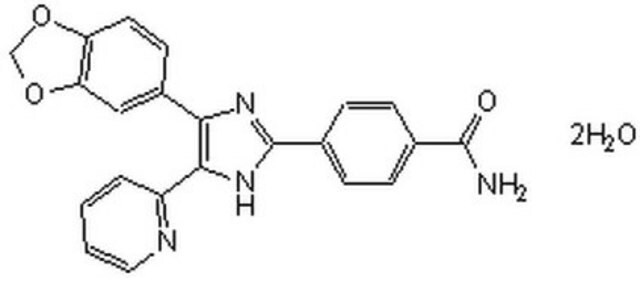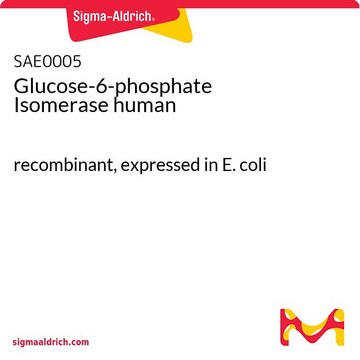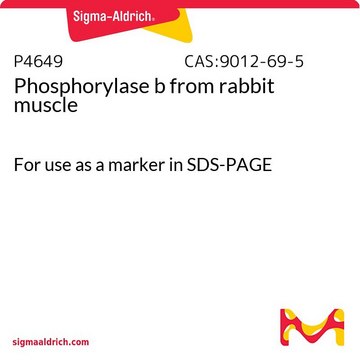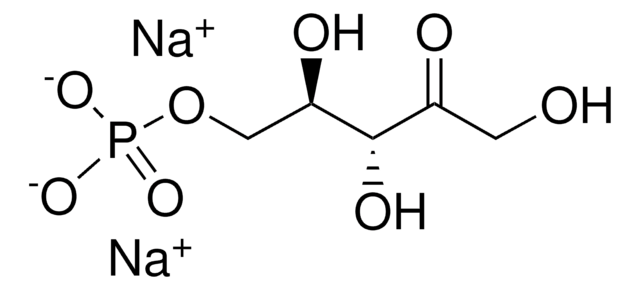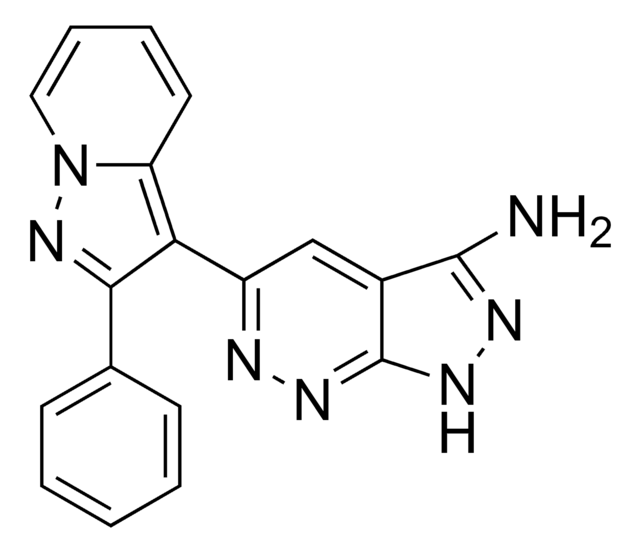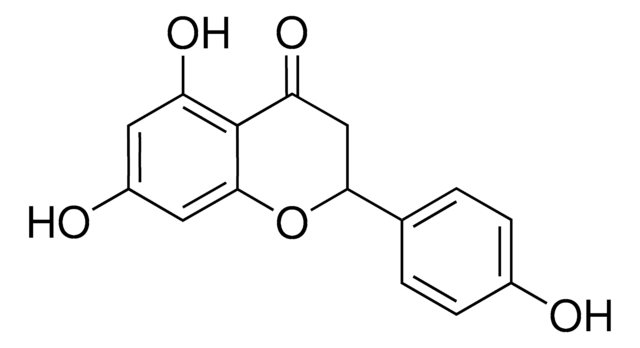SML0324
JW67
≥98% (HPLC)
Sinonimo/i:
Trispiro[3H-indole-3,2′-[1,3]dioxane-5′,5′′-[1,3]dioxane-2′′,3′′′-[3H]indole]-2,2′′′(1H,1′′′H)-dione (9CI)
About This Item
Prodotti consigliati
Saggio
≥98% (HPLC)
Stato
powder
Colore
white to beige
Solubilità
DMSO: >5 mg/mL
Temperatura di conservazione
2-8°C
Stringa SMILE
O=C1Nc2ccccc2C13OCC4(CO3)COC5(OC4)C(=O)Nc6ccccc56
InChI
1S/C21H18N2O6/c24-17-20(13-5-1-3-7-15(13)22-17)26-9-19(10-27-20)11-28-21(29-12-19)14-6-2-4-8-16(14)23-18(21)25/h1-8H,9-12H2,(H,22,24)(H,23,25)
BTXRSHKJNDFHGA-UHFFFAOYSA-N
Azioni biochim/fisiol
Avvertenze
Danger
Indicazioni di pericolo
Consigli di prudenza
Classi di pericolo
Acute Tox. 3 Oral
Codice della classe di stoccaggio
6.1D - Non-combustible acute toxic Cat.3 / toxic hazardous materials or hazardous materials causing chronic effects
Classe di pericolosità dell'acqua (WGK)
WGK 3
Punto d’infiammabilità (°F)
Not applicable
Punto d’infiammabilità (°C)
Not applicable
Scegli una delle versioni più recenti:
Certificati d'analisi (COA)
Non trovi la versione di tuo interesse?
Se hai bisogno di una versione specifica, puoi cercare il certificato tramite il numero di lotto.
Possiedi già questo prodotto?
I documenti relativi ai prodotti acquistati recentemente sono disponibili nell’Archivio dei documenti.
Il team dei nostri ricercatori vanta grande esperienza in tutte le aree della ricerca quali Life Science, scienza dei materiali, sintesi chimica, cromatografia, discipline analitiche, ecc..
Contatta l'Assistenza Tecnica.